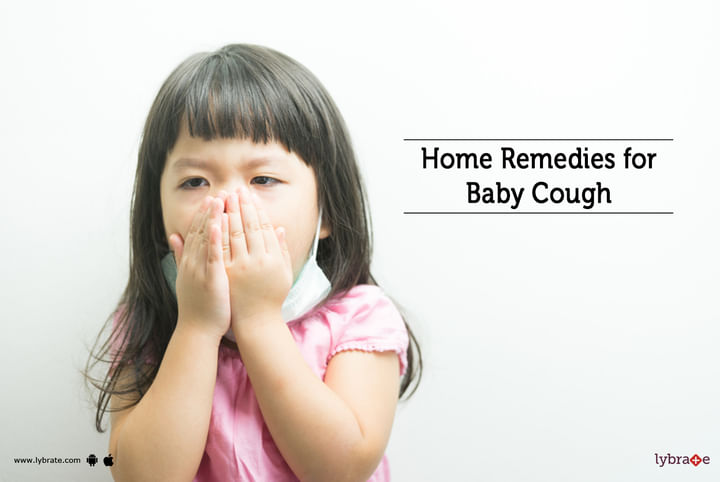Home Remedies for Baby Cough
Children are prone to infections like colds and coughs. Exposure to such viruses strengthens a kid’s immune systems and their ability to combat them. If the coughing isn’t severe or accompanied by additional, serious symptoms, you can assist your kid in managing their symptoms.
You can do so by making them feel comfortable and well rested as they do not require any type of medication or treatment if the symptoms are not affecting them. Many kids who have a cough or cold can often be seen playing happily and sleeping without any trouble.
Typically, a cough lasts for two weeks. Common viruses that are not treatable are the cause of many coughs. Treat symptoms only if they make your child uncomfortable or your child couldn’t sleep properly. The goal of cough treatment should be to keep your child hydrated, calm, and well-rested.
Breast Milk
Packed with lots of nutrients and antibacterial properties, breast milk is the greatest natural treatment for every sickness and one of the top Indian home remedies for infant cold and cough. Some kids who have a cold or a cough find it difficult to latch. Continue providing breast milk without concern. For a simple cold and cough, you don't really need to administer any further medication. The issue will be resolved with breast milk only.
Put some breast milk drops in nose
Not much popular practice, squirting a few drops of breast milk in your toddler's nose can aid in the speedy recovery from cough and cold.
Oil Massage
A light massage with coconut or mustard oil will help your infant feel better and stop coughing. Give your child a back and chest massage.
Massage with herbal coconut oil
Warm up coconut oil with some tulsi leaves to make a natural herbal coconut oil for massage that has the therapeutic qualities of the tulsi. Camphor can also be added in a small amount. Before putting your child to sleep, massage his or her chest to help relieve their coughing.
Saline nasal drops
These over-the-counter nasal drops can be a great help for you to help clear the mucus by softening it. Once the mucus gets soft, you can clear it with the help of a nasal syringe, nose blowing or also with the help of Q-tip, in case the first two options can’t be used.
You should always be very attentive while using saline nasal drops and always adhere to the usage directions printed on the bottle. If your toddler wakes up coughing, saline drops before going to bed or in the middle of their sleep can help with the coughing.
Sitting in a warm bath
This method can also help open nasal passages and soften mucus if it's tough to get saline nasal drops into your toddler's nose. Infants benefit from the steam from a warm bath because it is not advised to provide them proper steam. Running a hot water faucet for a while will also create steam in your bathroom. Sit in the bathroom with your child on your lap for 10 to 15 minutes. It is the best Indian home cure for treating chest congestion, and cough in infants.
Keep them hydrated
It's crucial to keep your child hydrated when they are sick. Water keeps the body healthy and maintains the strength and moisture of the airways.
Typically, 8 ounces, or 0.23 liters of water is recommended for every year of your child’s life. That means for one-year-old at least one serving of (8 ounces, or 0.23 liters) water is required per day, while two servings will be sufficient daily for a two-year-old.
Younger kids might require additional water if they're not drinking their normal quantity of milk or eating much. Offer them water whenever you can (at least every hour or so), but don't force them for it.
To promote fluid intake and alleviate a sore throat, you can also give them popsicles in addition to water.
Honey
A natural cough suppressant and sweetener, honey has antimicrobial qualities that may help fight infections of the upper respiratory tract. You can give 1-2 tablespoons of honey to your kid older than one year before bedtime to help soothe their coughing and also to promote sleep.
To help your youngster ingest the honey, you can also try combining it with warm water but always be mindful of the added sugar intake.
Also, children under the age of one should not be given honey due to the possibility of botulism, a rare yet serious illness that affects the body's nervous system.
Make them sleep in an elevated position
It might be challenging to get your older toddler to sleep with their head resting on one or more pillows, especially if they have a tendency to move about a lot when they're asleep.
Try raising one end of the mattress as an alternative to using pillows in the crib or bed to support your toddler's head. To achieve this, place a towel that has been wrapped up underneath the end of the mattress where your child's head sits.
To raise your toddler's head in the crib or bed without using pillows, you can alleviate one side of the mattress by tucking a towel that has been rolled up underneath where your child's head sits. You can also take expert advice before doing this.
The use of pillows while sleeping is not recommended for infants under the age of one and a half.
Maintain humidity indoors
Adding moisture to the air facilitates the thinning of mucus and prevents the drying out of your child's airways. Coughing and congestion may also be reduced by this.
Always go for cold air humidifiers as they are better against warm ones and lets your child breathe more safely and effectively.
Garlic and Ajwain fumes
Garlic is a very potent medication with anti-bacterial characteristics, and it is frequently used as a home remedy for little babies suffering from colds. Ajwain (carom seeds) are also effective against germs and viruses. On a tawa, roast a few large garlic cloves and a few pinches of ajwain for about a minute. Let your kid inhale the fumes coming out from the warm mixture by keeping it at a safe distance. This will help to soothe their coughing.
Use essential oils
These herbal products are becoming more and more popular, and when applied topically or diffused into the air, some of them may be useful for reducing coughing.
For aromatherapy use only those essential oils that are safe and efficient for use with kids older than three years. Some of these essential oils include ginger, sweet orange, orange, and mandarin citrus, as well as lavender and peppermint.
However, before using essential oils, always consult your doctor.
Conclusion
When treating coughs or colds, home remedies may be more effective than prescription medications as cold and cough medications sold over-the-counter (OTC) may have negative effects in young children. If your ward is older than six years you can give them prescribed medicines as per the instructions, however, the best course of action is to provide comfort measures at home to help them with the symptoms.



+1.svg)
